#the failed execution of a failed king ascending by force into a failed god..... still refusing failure to define him until the very end
Text
In spite of the whole bonkers thing of TP Ganon wielding his own execution sword, I find it fascinating that he is using a weapon of Light to fight you --a weapon originally conceived for purposes of justice, and that light still steeps through him through the wound.
And, to top it all off, Link uses tools more aligned with darkness to fight him back (turning into a wolf, Midna becoming a eldritch horror...)
Symbolically this combo of reverse mirroring AND literal mirroring is very interesting I think
#thoughts#twilight princess#tp#ganondorf#link#midna#thinking...........#meeting in the middle#truly the twilight of all princesses#seriously they were on grade A mythology shit when they made TP#the failed execution of a failed king ascending by force into a failed god..... still refusing failure to define him until the very end#tp ganondorf really always pulling at my heartstrings :_:#in spite of the game not textually committing to these ideas#I'm fairly certain the arbiter's grounds were intentional at least for somebody in the team#even if the idea didn't translate for everyone or had to be mostly washed clean
429 notes
·
View notes
Text
5:00 P.M.
The dragon King and Beliarok appeared into the ronin camp, one of the largest camps of it's kind full of the straw hats and samurai in with lunarian insurgents while assisting the wounded soldiers of the allied forces and all she's seeing is their suffering while the filth that are the lunarian insurgents even in the aftermath of gensokyo's destruction they still have the nerve to attack while everyone is rebuilding.
" By the gods.... "

" You could say that again..? "

One of the ronin priest bow lightly toward the dragon king seeing that she has finally ascended from a warrior to the king herself.
" You have come my lord.. "

" Mhm I have, tell me dear friend who is in need of execution today? Let's face it they're fail to see the realization that their king has abandoned them.. "
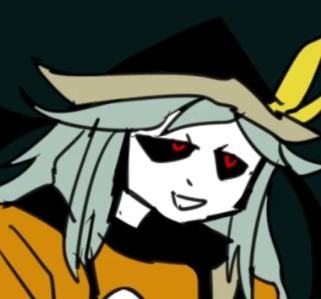
" there only four insurgents do what wish my lord... "
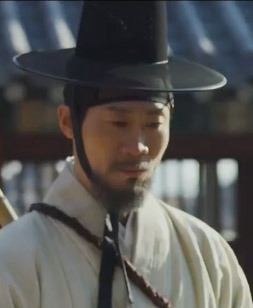
Koishi twirls Beliarok in her hands walking towards the four to five lunarian prisoners on their knees bound by their hands tied in rope. The dragon King and her weapon are eager to cut them to pieces.
" Okay you know the drill you guys before I cut you to pieces do you have any last words? "
And then there's silence.
" No words? Good you four are a huge nuisance. "

And already Koishi swings Beliarok cutting their heads clean off, all four of their heads rolled around the ground and now she and him are covered in blood. No hesitation or any thoughts as killing lunarian remnants is just another day in gensokyo and there is no point in feeling sorrow after what they have did to her and her world.
" About time... "

" You're most certainly welcome Beliarok. "

" What shall we do with their heads my lord? "
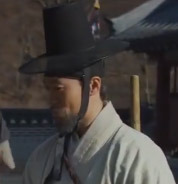
" Ugh do what you wish with them, hang their heads, cremate their carcasses it matters not... "
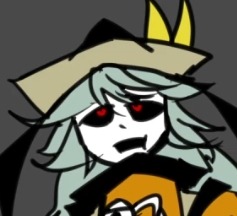
0 notes
Note
My dude, my gal, or maybe nonbinary pal (just to be sure, don't know your pronouns) you gave me the light, you have opened my eyes. All this ships I didn't know I needed and now can't get enough of. Your writing is a DELIGHT. For a prompt, how do SQH's disciples see him? What about the demons under MBJ? That one shot of LQG getting jealous of MBJ in which the underling backs away slowly means this isn't the first time that has happened right?
Thank you so much! It really makes me happy to hear that people enjoy reading my stuff. It���s half of what makes writing it so enjoyable for me. Another part I enjoy is how I seem to be dragging all you poor fools down with me into my shipping abyss of rare pairs. God bless.
I went with the demon perspective! Might do a disciple perspective next time? Idk. @quiensecomioelpie
—
As an agent of the Northern kingdom, Mao Liang is required to attend strategy meetings whenever they are present within the palace. Regardless of whether they had just returned from a long, grueling mission in the field only the day before, or not.
Luckily, there’s never that much attention brought to them, and Mao Liang is never expected to share their opinion or thoughts during the meeting, only directly to his majesty and the advisor afterwards. A relief, because if Mao Liang had to speak to the dozens of generals and high ranking soldiers and fellow agents that stand around the colossal, war room table alongside them… Well, that’s a crowd, isn’t it? If Mao Liang was forced to publicly speak, they might actually die.
Someone who doesn’t seem to ever have a problem with addressing a crowd of demons, though — be they gruff soldiers or generals or a glowering, looming king — is someone that is worth admiring.
Lord Shang pulls his furs around his shoulders more tightly, attention directed almost entirely on the maps sprawled out over the table they’ve all gathered around today. His head tilts toward the side just slightly, like a predator whose eyes have zeroed in on his prey, and Mao Liang has to fight the urge to shiver at the sight.
The odd twitches that they see in their fellow demons tells them that they, too, experience the same unease, so at least they’re not alone in this.
It was an odd thing, at first, to fear a human — much less a cultivator. In the beginning, as Lord Shang was just ascending into his climb for power in the Northern Kingdom, it had been something Mao Liang had been almost offended by. Just as any demon in their right mind would be, faced with such a slight, twitchy little thing, whose eyes rove to and fro as if they are a frightened animal. It screams of weakness, to any demon eyes.
Any demon that doesn’t already know better, at least.
Within the decade, however, it became clear that this feeling did, indeed, have its place in Mao Liang’s heart. That they were not experiencing a falsity. That Lord Shang, despite his diminutive appearance, is deserving of this respect, and not just because his majesty is so fond of him.
Not only is the cultivator powerful — Mao Liang still shudders in remembrance, whenever there is a storm in the sky strong enough to birth lightning — but he is conniving. He is intelligent to a terrifying degree. He is scarily efficient, productive, and reliable.
When Lord Shang says something will be done, it is done.
When Lord Shang says changes need to be made, they are made, no matter how many voices make their dissent known (nor how many idiots have, over the years, attempted something much more underhanded — they all fail, each and every one of them, and eventually the attempts were fewer and fewer, before just completely grinding to a halt).
If Lord Shang decides you are not fit for a position….
Well. In the beginning, he’d have just taken care of it himself. Through varying means, all of them increasingly terrifying, according to the rumors Mao Liang has heard over the years. Now, though…
Now, if Lord Shang decides someone has to go, the king himself is ever so obliging to make sure that it happens, often post haste.
So much power in the palm of a single person, even if he is an immortal master — it’s awe-inspiring.
So, Lord Shang indeed deserves the respect he commands from the heart of every Northern demon, and even those beyond their borders. However long it had taken them all to realize (and then accept), the state of the kingdom in recent years has been thriving more than it ever has in the past. Things haven’t been this good since perhaps the early golden age of the current Mobei Jun’s great and mighty ancestors. And they all know exactly who to credit that for.
“Here.”
Mao Liang startles, gaze snapping down to the map and zeroing in on where Lord Shang’s dainty (and deceptively powerful, mustn’t forget that) finger is tapping on an outlined enemy outpost.
“Eliminate them, first.” Lord Shang says.
“Ah — my lord?” One of the generals hedges awkwardly, tone coming out rather flat in his attempt not to offend — as it happens with most demons, their accents when speaking the common language does not leave a lot of room for niceties and polite speech. It’s caused a lot of scares with Lord Shang, where the demons under his attention are never certain if they’re about to get banished from the kingdom or executed by the king (which would be a mercy, certainly).
Mao Liang winces, covering it up by clenching their jaw tightly and eyeing the general who spoke from the corner of his eye, as Lord Shang turns his attention directly upon him.
The general is standing ramrod straight, shoulders stiff and brow pinched, when the advisor’s aquamarine gaze cuts to him. The demal shouldn’t have spoken up at all.
“What is it?” Lord Shang asks, pleasantly. Mao Liang feels a shiver wrack their spine.
Lord Shang is always pleasant, right up until he isn’t. It’s when he isn’t, that one has to watch out for oneself. But it’s ever so difficult to know when that caution is required, because Lord Shang is unpredictable, in a sense.
It takes a lot to truly and irreparably offend the honorable advisor. The last one who had…
They’re still scraping the poor guy’s innards off the wall of that conference hall, Mao Liang is pretty sure.
“That outpost…” the General begins, haltingly. He eyes the peak lord hesitantly, searching the neutral mask for any sign of displeasure, before continuing. “It’s not very important in the grand scheme of things, my lord. The enemy does not particularly value it. To expend our forces on its destruction would, I believe, be a waste of our resources at this time.”
There. Succinct and to the point. Mao Liang cranes their head around to peer at the advisor, who stands at the head of the table.
In the shadow of his majesty’s great bulk and dark glower (which is currently directed at the silently sweating General, poor demal), Lord Shang looks so much smaller than he actually is. Almost breakable. Non-threatening.
Mao Liang has never heard a more hilarious joke in their life. Non-threatening, their ass.
“You would think so, wouldn’t you?” And oh, there is cheer injected into the advisor’s voice, now. Mao Liang watches in fascination as the general visibly cringes. “Ah, but that’s where you’d be wrong, General Peng! You see, this particular outpost actually is rather important, especially to our enemy. They’d just like for us to think that it isn’t. The larger outpost, here?”
Lord Shang sweeps his hand across the map to the larger outline that’s much closer to the Northern borders.
“That seems more of a threat to us, just like you pointed out earlier. And I agree, it does seem that way — however, this larger outpost is only a decoy. A red herring, if you will. It’s larger and more heavily manned specifically to distract us from this smaller outpost over here.”
General Peng flinches minutely, having his own contribution to the meeting so effortlessly and nonchalantly thrown back into his face as only an incorrect assumption rather than a logical deduction. He doesn’t speak, though, even to ask the advisor where he’d gotten such information from.
No one ever asks Lord Shang how he knows something. Everyone knows that if Lord Shang knows something, then he just knows it, and you are to trust it, because he is never, ever wrong.
It is frightening enough, having the advisor of the king know your name, personally, without you ever having introduced yourself to him. Small, meaningless facts about you, the names of your family, where your clan ancestral ritual grounds are (something that no demon tells anyone outside their own clan, upon pain of death. And having that just thrown out there in casual conversation? Terrifying.). What you had been doing, while undercover, just the week before….
Mao Liang’s first meeting with the Peak Lord Shang had been memorable, to say the least. They had come out of it with a very, very healthy fear and respect for the man, of course. Ask any demon in the Eternal Winter Palace — hell, any demon in the damn kingdom itself — and they would tell you the same.
“It’s this outpost we have to worry about.” Lord Shang is saying, tapping once again on the smaller outline. “It’s the center of their operations. Everything that actually matters is hidden underneath it. It is absolutely crucial that those of you in the field ensure that it will no longer be a problem. You should take, I’d say, around three platoons.”
Mao Liang glances down at the outline. The outpost is tiny, nestled into the belly of a valley. Just looking at it, they would guess there are only perhaps a thousand demons in total guarding the place. Sending in six thousand soldiers to take it out is a bit of overkill.
But, then again, if the real operations are all happening underground, concealed….
General Peng’s lips thin into a pale line. Then, the demal nods in acceptance. “If Lord Shang says so.”
“I do,” Lord Shang says, quietly, not even lifting his gaze back up from the map, staring down at where his own finger is pressed to the outpost.
General Peng’s entire face goes pale.
Before anything else can happen, like Lord Shang going completely silent and unhelpful (It’s happened in the past, Lord Shang deciding that they no longer required his advice, if they were so certain of their own (always subpar) intelligence on the matter. His majesty’s ire, in response, had been absolutely brutal on everyone even peripherally involved. Mao Liang had been lucky enough to not have been in attendance at that particular meeting, but they’d heard stories.)— before anything like that could happen, the king himself decided that enough is enough.
Mobei Jun shoves off the table and sends them all a sharp glare.
“Well,” his majesty says, powerful voice expanding into the air and filling the cavernous war room like it was something material. “You have your orders. What else do you want? Get out.”
As they all scramble to their feet and head for the door, Mao Liang is at the forefront. They hate tactical meetings. They’d rather be on the field. Or in their quarters, sleeping. Or in their quarters, reading. Anywhere that other people are not. This meeting has already drained their meager energy levels to almost nothing. It’s nap time. It’s nap time.
“Mao Liang,” Mobei Jun’s voice calls, and they fall to an abrupt stop just before the doors. “Stay behind.”
Demons, generals and soldiers and even fellow agents, stream past them, and they quietly despair. Fuck! They’d been so close!
They turn, and step back to the table. They execute a bow, working to keep any expression off their face entirely — especially when Lord Shang smiles at them. Oh, ancestors.
“There’s a mission that requires the best counter-intelligence agent that we have,” Lord Shang begins, as flattering as ever, and Mao Liang knows immediately that they’re in for a lot of work. Dammit. “Here, follow me. There’s no reason to do this in such a drafty, echoing hall. I’ll debrief you on the way to the kitchens.”
Ah! Mao Liang hasn’t eaten since yesterday! And from the glimmer in Lord Shang’s eye as the man smiles, he knows it too.
Another thing about Lord Shang, that Mao Liang particularly admires, is how the man cares, despite everything else. If you ever work directly underneath Lord Shang, you can always be absolutely certain that he will look out for you.
In the Northern Kingdom, there is no place safer.
#svsss prompts#shang qinghua#mobei jun#scum villain's self saving system#demon realm#war strategies#demons#demon spy OC#vodka answers#vodkassassin fanfiction#quiensecomioelpie
122 notes
·
View notes
Text
Dragon Dancer III: Carli’s Child
Major Spoiler Warning: Villain Plot Reveal, and Monsters Revealed from Chapter 103 in the game
Trigger Warning: This chapter has been described as ‘gruesome’, and ‘messed up’ by some beta readers for its disturbing imagery.
The King stood at the edge of the well, a deep hole a football field in diameter surrounded by walls of jagged rock cut into the mountain by wind and rain. He and his engineers wore full-body suits made of a synthetic material that could withstand the most corrosive substances. White spiderweb filaments that crawled up from this hole like mold, spilled over the edge and crept over the whole area, oozed a milky noxious liquid that dissolved organic material. Trees dropped their leaves, and grass withered. It grew over animals who came in contact with it and couldn’t escape until they were cocooned and dissolved into blackened husks.
The underground river at the bottom of the well should have been devoid of life. It was an ancient lava tube that collected water that seeped through the porous ground. This river also came in contact with the active volcanic activity in places, warming it like a hot spring. The warmth and the nutrients provided by the volcano made it the perfect nursery for growing dragonkind.
The Executive Department of Hydra had dumped powerful poisons into the water not a day ago in an attempt to destroy that dragonkin. Yet the sonar, the infrared and the seismic instruments of The King’s engineers indicated that something very large was breathing down there. It was moving. It had a heartbeat. The temperature of the water had gradually heated to boiling. The stench was overpowering.
The King looked down at the small bundle in his arms. His voice held a great fondness. “Do you smell it little one? Oh yes, the smell of a new birth!”
The baby looked up at him with calm innocence. His skin was a soft chocolate brown, his eyes a fiery red. His dark hair curled on his head.
From the day Ruri Kazama failed to capture the Empress Hybrid, The King knew he had a problem on his hands. He depended on Ruri being under his complete control from beginning to end to resurrect the god. Once he realized that there was someone to rival him, someone who could break through his woodblock hypnosis, he got to work on a replacement.
Using the Empress’s egg cells he’d purchased from the Comemnus Corporation and the sperm harvested from Ruri Kazama, he had created this replacement. Something this tiny and helpless did not need to be controlled.
“The god has awakened... now to pay our respects.” He took a razor blade and pierced the baby’s hand. The baby’s face twisted in a grimace and his face turned red. He began to cry and scream. It gave the King a shiver of joy to hear it.
He held the baby’s hand over the expanse and let the blood run down his little fingers and sprinkle into the well.
“Sonar detects a large object incoming!” The members of the Devil Clan stepped back from the edge of the abyss.
“Let us welcome our new god!”
The water underneath spawned a whirlpool as a great creature swam to the surface, drawn by the scent of the baby’s blood.
“Let’s see how strong it is! Start the turbines!” The King ordered.
The engineering crew turned to their control and command center. At the bottom of the well, a turbine spun with such great force that even a submarine would not be able to resist the pull.
The beast in the water in the water ignored it, continuing upwards, without slowing down.
“Amazing! Amazing!” The King danced with joy, swaying, pacing and gesturing erratically
The engineering crew, meanwhile, exchanged glances as they looked over the creature’s quickening vital signs and unstoppable power. Perhaps they were making a mistake.
“Begin the second test!”
The second test involved a volley of explosives dropped into the well that sank down and detonated, surrounding the beast with fire. But again, the sonar screen indicated that the dragon was unaffected. It quickened its rise to the surface! “The target is accelerating!” An engineer looked over his shoulder at the well.
“Test number three!”
They closed twelve thick reinforced gates above the creature. A net of nanofibers stretched over each of them made out of threads strong enough to carry the Trieste. The beast not only broke through the gates but began breaking through the nets, stretching and sawing through the powerful fibers!
The engineering crew scrambled to safety. “It’s coming to the surface! Take cover!”
Only the King stayed calm. He held the crying baby over the well. The beast broke the surface, shooting completely out of the water and clinging to the sides of the chasm by what at first appeared to be tentacles. They realized, once the pairs of bright glowing eyes opened on each appendage, that they were not tentacles but multiple heads cleaning to the rock.
Eight heads.
Four cannons surrounding the chasm pointed down into the well and exploded into deafening fire, each round full of anesthetic drugs. But that couldn’t slow down the beast clinging and hissing on the wall.
The integrity of the well itself began to falter. The struts holding it open collapsed down into the dark. “Throw down more nets!” The chief engineer roared. “Capture it!”
The King chuckled. He knew that at full power, this creature was beyond capture. He would need to weaken it further. Against the nets, against the cannon fire, it used its eight heads like arms to climb up. It leveraged a sharp sickle on its tail to gain stability on the slippery rock. Soon, it would be completely free.
The King opened his hands.
The baby fell screaming down into the dark. He didn’t see the child hit the boiling water, but now the river was full of the blood of the god. He trusted in a rapid transformation.
“We’re detecting another heartbeat! A new energy signal!”
The awed cries of the engineering department sang like a chorus in the King’s ears. An oblong pale shape levitated from the water. The floating egg ascended, cracking and splitting. Finally, it shattered into glass-like fragments. Beautiful white and gold wings spread into the cavern. Even though the baby was still a baby, the wingspan appeared to stretch the length of a bus.
Two of the dragon's eight heads turned to look. Tiny motes of light snowed down toward the wings, being absorbed into the feathers until they turned an angry glowing red. They stretched and elongated into a multitude of flaming whip-like tendrils.
The eight headed dragon struggled to continue its climb and managed to just reach above the lip of the well when bright red-hot tendrils of energy surged upward. They whipsawed against the flesh of the newly awakened dragon, tearing off bloody strips of quivering muscle. One head was taken off completely, spraying a spiral of blood back into the depths of the well.
The dragon roared and wailed in despair, as though begging for the torment to stop.
The King folded his hands behind his back. So this was the power of the offspring of Emperors. Even in infancy, not even the gods could challenge it.
The eight headed dragon, weakened and in pain, relinquished its grip on the wall. It fell to the bottom of the well. It hit the water, sending up a splash reaching meters high.
The child’s wings lifted above the opening. It soared to his father, mewling, seeking comfort. The wings stretched up into the sky as it reached down for him. The King held up his arms and cradled the baby. The sheer weight of the wings should have flattened the King, but these creatures did not follow the simple laws of physics.
The engineering team rushed to dump liquid nitrogen into the well. Dragons were reptiles and the cold temperature put it into a stupor. It was unable to move or fight any longer. They’d done it.
They’d captured a god.
The King paced back and forth. Using more of the nanofiber nets, they lifted the half frozen monster out of the well. Cranes lowered car-sized buzzsaws to cut into the creature. Heavy machinery lifted the severed parts away. Blood poured from the helpless dragon, painting the white filaments in red, staining everyone in the work area crimson.
This eight headed creature actually wasn’t the White King. It had only inherited the White King’s remnants. The Devil Clan worked to dismantle it with uncharacteristic joy. Finally, they would ascend above the years of torment and injustice and become more powerful than anything they ever dreamed. Some of them openly wept.
The creature was completely subdued. It was still conscious but unable to move as it was skinned and one by one its heads were severed until the last one was gone and it died in truth.
The King glanced up at the sky, understanding he was on a strict schedule. The Sword of Damocles edged ever closer. The satellite weapon would descend and turn this place into an inferno. He would have to contain the sacred remnants and leave this place.
Eventually, they reached the heart of the dragon. The massive organ slid out of the chest with a suction noise and a shower of blood. It was translucent like a gem and inside the gem, something was wriggling.
The King panted with urgency “Cut it open! That’s it! The Sacred Skeleton!”
The skeleton wasn’t bone at all, but a living parasite, white, like a mutated embryo with a tail like a flexible spine. about the size of an orange with a single eye like spot at the tip.
The saws cut into the heart. The liquid inside poured out, taking the sacred parasite with it. As soon as the white worm emerged, it was met with a shower of liquid nitrogen.
“How beautiful.” The King is still cradling his now sleeping ‘son’ in one arm. “See… once our host arrives… I will be sure you are the first to taste the true power of the White King.”
They used a strong vacuum to suck the creature into a glass canister for storage to prevent it from entering another creature.
The rest of the Devil clan were confused. Finally someone spoke up. “How can something like this make us into full blood dragons?”
“We will need a host. Once the parasite finds the host... it is the blood of the host that will evolve you.”
A beam of light suddenly illuminated the mountain side. A large helicopter descended rapidly from the sky, its downdraft sweeping the area.
The King began to laugh. “And now our host is here!”
3 notes
·
View notes
Photo
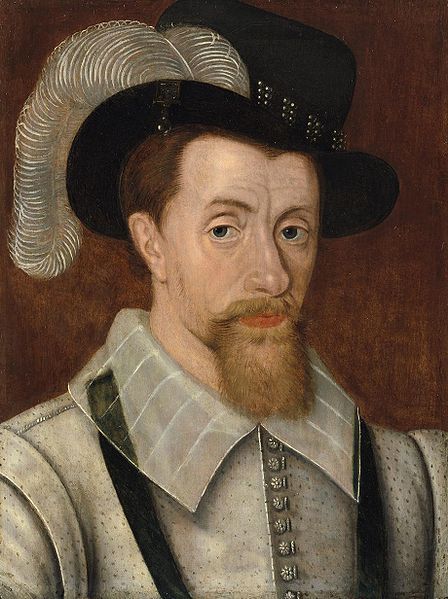
On July 29th 1567 King James VI was crowned at Stirling.
Picking up from last wednesday's post when Mary was forced to abdicate, the powers that be wasted no time in getting the formalities over and crowning the 13 month old son of Lord Darnley. The last time James saw his mother, Mary was in 1567, when he was barely a year old.
Because of his young age a regent was appointed to act as head of state. In fact, during his minority a succession of regents were chosen to rule in his stead.
The first regent was Mary’s half brother, James Stuart, Earl of Moray, Upon the Earl’s death in 1570, Matthew Stewart, Earl of Lennox, who was James grandfather, became the second regent. His regency didn’t last very long, as he died in 1571. The third regent was James’s guardian, John Erskine, the first Earl of Mar whose regency also didn’t last long, he died in 1572. The fourth and last of the regents was the very powerful James Douglas, Earl of Morton.
In spite of his mother’s Catholic faith, James was brought up in the Protestant religion. He was educated by men who had empathy for the Presbyterian church. His marriage to Anne of Denmark (a protestant country) no doubt pleased his Protestant subjects.
James VI is said to have had a terrible childhood, much like his forebears, including his great-grandfather. He had been used and abused by his tutors who were just looking to someone to manipulate and to mold into their little puppet. He was then told that his mother was the most horrible person in the world to the point that he did not know what the truth was anymore. When he was a teenager he became very independent and learned to hide his feelings very well but he also started working for his mother’s release, although some historians dispute this.
He was vocal in his opposition for his mother's trial and subsequent execution and I even read that James was "Desperate for his mother's life". He even destroyed the casket letters in 1584, which although may confirm that they may have had actual proof against Mary, was definitely a move so that his mother can rest in peace after her death and that her memory and legacy will stop being trashed and disgraced because of the letters.
Who knows what really went through his mind. Did he really care about her? Or was he was just looking to release her because he was worried that her execution and her bad reputation would also affect him and his chances to get the throne? There is some reason to believe this last one because Fontenay, the French Ambassador, noted that whenever James talked about his mother, he never “inquired anything of the queen or of her health, or her treatment, her servants, her living, and eating, her recreation, or anything similar.” And how could he when he never knew her and the people who raised him kept telling him ugly stuff about her? To those that were closest to the young King, his mother was the devil incarnate.
Whichever was, Elizabeth I was never going to release Mary Queen of Scots anytime soon and she must have made this very clear because the following year in 1585, when James was 19, he agreed with her decision to keep his mother in prison and even called Elizabeth “Madame Mother”. Imagine how this made Mary feel,her only son, the only hope she had to get free, calling her jailer ‘mother’. It was at this point that she started looking for other means to be released. Ultimately we know they all failed.
I didn't really want this to turn into another post about Mary, but she is so involved in the history of it all she will inevitably turn up time and time again. Anyway more on Young james.......
King James was tutored by George Buchanan and Peter Young. He was a dedicated student and by the age of 8 he was fluent in French, Latin, Greek, and English. This stern upbringing would inspire him to appreciate the arts and sciences and encourage the learning of them all throughout his reign, the King once remarked, that he could speak Latin before he could speak his native Scots. Because of his linguistic capabilities, King James typically did not need a translator when conducting business with other heads of state. King James grew into a powerful king with a powerful pen--he had peace at home and abroad, something few of his ancestors could dream of. His motto was His motto was "Beati Pacifici,"--Blessed are the peacemakers, not to mixed up with -Blessed are the cheesemakers, which of course came from The Life of Brian! ;)
King James' great aspiration to be the first King of both Scotland and England was realized in 1603 upon the death of Queen Elizabeth. When he ascended to the English throne that year he had already been king of Scotland for 36 years. He was now known as King James VI of Scotland & I of England. This came with its own dangers, and of course one of the most famous plots in history, still remembered every November in is known as Guy Fawkes Night.
As a Scotsman ruling over the English, the King endured much racism and slander--especially from the once powerful English Lords and Ladies who he replaced with his Scottish countrymen. Unfortunately, many of today's historians look to the writings of hostile sources such as Sir Anthony Weldon and Francis Osborne as accurate descriptions of the king, nowadays we would say, Haters gonna hate!
The king wrote of his enemies: "They quarrel me (not for any evil or vice in me) but because I was a king, which they thought the highest evil, and because they were ashamed to profess this quarrel they were busy to look narrowly in all my actions, and I warrant you a moat in my eye, yes a false report was matter enough for them to work upon."
The thing with King James is he believed in the doctrine of the divine right of kings and the monarch's duty to reign according to God's law and the public good. This would be handed down to his son Charles I and then to Charles II leading to the loss of many lives during their reigns in The English Civil War,The Bishops Wars and of course The Killing Time.
As a lover of the theatre, King James became patron to the troop of one of his most famous subjects--William Shakespeare, the playwright. Shakespeare's troop came to be known as the King's Men. Shakespeare and the King held a special relationship as they both loved literature. It is said Shakespeare wrote his famous play, "Macbeth" specifically for King James. The "Scottish Play" as it is known in theatrical circles may well be one of Shakespeare's most famous plays, but when you look at the real history of Macbeth, the play was basically The Braveheart of it's day!
Afew other facts surrounding James and his legacy, the US Jamestowne is home to the ruins of the first permanent English speaking settlement in the country, and named in his honour.
To this day the translation of the bible he ordered is known as the Authorized King James Bible. He appointed 54 men to the committee who were not only the best linguists and scholars in the kingdom, but in the world. Much of their work on the King James Bible formed the basis for our linguistic studies of today.
King James had a life filled with accomplishments but he was a man acquainted with grief. He was a sickly man who had physical handicaps in his legs and allegedly a tongue that was too large for his mouth! As a result of his unsteady gait, the king had numerous falls, accidents and injuries. He suffered from crippling arthritis, abdominal colic, gout, inability to sleep, weak/spasmic limbs, nausea, frequent diarrhea, and kidney pain. Some believe that he may have had congenital diseases of the nervous system. Sometimes the pain was so great that the king became delirious.
To add to his ill-health, the James it is thought suffered from depression from the death by his eldest son, Prince Henry in 1612 and his Queen in 1619. James VI was no stranger to pain and sorrow.
I didn't set out to put a long post like this together sometimes they just happen, King James VI & I died on March 27th , 1625 at Theobalds Park in Herts, England. He was 58 years old when he died and had been King of Scotland for most of those years, as well monarch of England for 22, he was buried at Westminster Abbey.
Unlike many Scottish monarchs, King James died in his bed at peace with his subjects and foreign countries. He also passed royal power on, intact, to an adult son which was also quite unusual.
18 notes
·
View notes
Photo
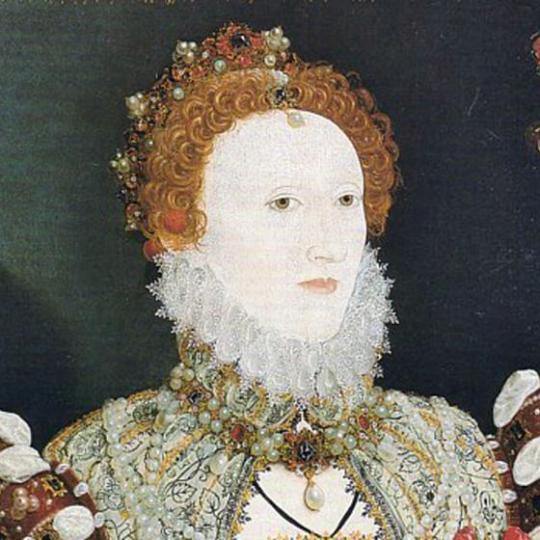
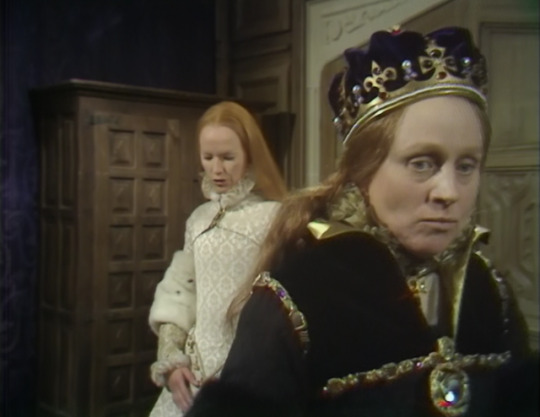

The Contrast between two powerful women -Mary & Elizabeth: Princesses, Bastards, Sisters and Queen Regnants
David Loades on the two of them:
“To Elizabeth there were no ‘matters impertine to women’ -in 1588 she even donned armour and proposed to lead her army. To Mary the perceived distinctions of gender formed an intangible but very real barrier that partly determined her relationship with her husband. Altogether Elizabeth was far better quipped by nature to deal with the situation in which she found herself. Both women had passed through difficult and traumatic times as adolescents, but whereas the experience had left Mary in poor health and uncerstain of herself, it had left Elizabeth crafty and wary.
Mary’s real tragedy is that she was born to be a royal consort, the pious and dutifiul wife of a powerful king. Instead she found that God had given her the duty of ruling a realm. What Elizabeth was born to be is anyone’s guess, but she coped very successfully with what God threw at her. Considering all these limitations, and the shortness of her time, Mary’s reign was, nevertheless, in many respects successful, not least because she set precedents and also made some of the mistakes that Elizabeth was thereby able to avoid. As a person was (as even John Foxe recognized) a tragic figure, but as a queen she was important. In fact there is a lot to be said for loking at England from 1553 to 1603 as the realm of the queens -the time when England came to terms with challenging fact of a woman on the throne.”
David Starkey:
“Mary Tudor aimed for a heavenly crown; Elizabeth for an earthly one. The result was that for Elizabeth human life, in some sense, mattered. She was prouf of the fact that there had been no political executions in the first decade of her reign and bitterly disappointed when the circumstances of 1569 gave the headsman work once more … Mary, Henry VIII’s half Spanish daughter, had lost what he had gained and degraded his achievement. Now his other daughter Elizabeth, mere English, would restore his crown and her inheritance.”
Linda Porter:
“As national identity began to emerge strongly in England, Elizabeth was raised almost to the status of a national saint by centuries of male historians raised in the Protestant tradition. In this respect, her reputation is perfectly understandable. She was a remarkable woman presiding over a time of great achievement in many areas of human endeavor.
Less easy to explain is why modern writers still persists in denigrating Mary. Elizabeth’s reputation is not diminished by acknowledging the interest or achievements of Mary’s reign, short though it was. Though Mary had not enjoyed good health since her mid-teens, there was no reason to suppose she would die five years after ascending the throne … The blackening of Mary’s name began in Elizabeth’s reign and gathered force at the end of the 17th century, when James III compounded the view that Catholic monarchs were a disaster for England. But it was really the enduring popularity of John Foxe which shaped the view of her that has persisted for 450 years.”I think Mary was no different than her father and sister in terms of cruelty, so I partly agree with Loades and Starkey here. Where Bess succeeded was in her uniqueness in staying single, and playing one side against the other, but more than that in her flamboyant fashions, and the way she used art to present herself as this divine matron. This was an age where appearances mattered and like their father, Elizabeth I understood that more than Mary I did who, despite trying her best efforts to be a dutiful wife and queen, didn’t succeeded in her PR campaign.It was Elizabeth I’s PR campaign that came out stronger and it also had to do with how many years she ruled and the assassinations plots she avoided. She also exploited on the roots of national identity that had been planted in England since the One Hundred Years war, and religion had a lot to do with it. Whereas Mary became the Spanish Tudor, a woman of foreign descent with a foreign religion, Bess I became the Englishwoman, born of two English parents with a religion native to England. After the two were buried together (on order of James I), Mary would take on the role of the evil queen. The Victorians only made it worse. It wasn’t until the twentieth century that people began to look at Mary in a different -and more objective- way. Unfortunately, some take it too far and become angry at seeing the words ‘Bloody’ and ‘Mary’ in the same sentence. As with many figures of the Tudor era, you have to either like them or hate them. They must be saints or they must be villains. Mary was neither. She was a trailblazer as one article pointed out, and as other historians have also pointed out, but she was also a tyrant and this is not something to be alarmed or squeamish about when everyone during this period was an autocrat and was willing to go above and beyond to protect his (or her) position. That is why Starkey’s epilogue in his biography of Elizabeth I, discussing the contrast between the two sisters, fails because while Elizabeth did prove to be more pragmatic and make more use of her image to showcase herself as this divine figure; both were just as cruel. And while Elizabeth I didn’t burn as many people, the heresy laws were still in place. Anabaptists were considered heretics so in theory they could still burn, and many of the archaic laws put in place during her ancestors’ continued. Lastly, Bess used other means to get rid of her cousins. Isolating them, driving them to madness and in the case of Mary, Queen of Scots, beheading them.Out of all the latest biographers, it is Leanda de Lisle who gives the best summary of the two sisters, pointing out their cruelty, their dismissal of the law when it was convenient, and the struggles they faced -and how they faced them.(Before some Tudor fans get angry, I am not saying that Mary was the sour woman that the first Elizabeth film -starring Cate Blanchett- made her out to be, but compared to Elizabeth who placed more emphasis in clothing, paintings, etc; Mary preferred to spend her time behind her desk, overseeing the progress of her Counter-Reformation.)Sources:1. Mary Tudor by David Loades2. Elizabeth: The Struggle for the Throne by David Starkey3. The Myth of Bloody Mary by Linda Porter.And 4. Tudor by Leanda de LisleI also recommend: Mary Tudor: Princess, Bastard, Queen & The Queen's Bed: An Intimate History of Elizabeth's Court (both) by Anna Whitelock; Tudor Age by Jasper Ridley,The Tudors: A Short Introduction by John Guy and Time Traveller's Guide to Elizabethan England by Ian Mortimer.
7 notes
·
View notes
Photo

On June 19th 1566 King James VI was born at Edinburgh Castle.
The only child of Mary Queen of Scots, it was a difficult birth for her, and her son was born frail. Rumour soon spread which would haunt James for the rest of his life. The first of these rumours was that James was not Lord Darnley's child but Bothwell's. This can be dismissed by the fact that at the time of his conception, Mary was still infatuated with Darnley, and by the child's resemblance to his father. Secondly, there is a theory that James actually died at birth and was replaced by one of Erskine, Lord of Mar's child. This is substantiated by the remains of a baby skeleton found within the walls of Edinburgh Castle in the 18th century. This again is highly unlikely.
James was baptized Charles James in a Catholic ceremony at Stirling Castle. It is not unusual for monarchs to take another name when they ascend to the throne, the last case being King Robert III who was baptized John but thought it was an unlucky name as evidenced by John Balliol, King of Scots.
At the baptism were representatives of the French king and the Duke of Savoy who were the Godfathers and the Countess of Argyle, who attended in lieu of Queen Elizabeth, acknowledging she accepted being godmother to the Prince.
The next year in June the Protestant lords rebelled. They had become increasingly unhappy with Mary (James’ mother) after her marriage to Bothwell. They arrested and imprisoned Mary in Lochleven Castle where she was forced to abdicate the throne of Scotland. James, was only a year old when he became James VI, King of Scotland.
Because of his young age a regent was appointed to act as head of state. In fact, during his minority a succession of regents were chosen to rule in his stead. The first regent was Mary’s half brother, James Stuart, Earl of Moray, Upon the Earl’s death in 1570, Matthew Stewart, Earl of Lennox, who was James grandfather, became the second regent. His regency didn’t last very long, as he died in 1571. The third regent was James’s guardian, John Erskine, the first Earl of Mar whose regency also didn’t last long, he died in 1572. The fourth and last of the regents was the very powerful James Douglas, Earl of Morton. Douglas survived long enough to see James reach an age to which to ruled himself, however he was later executed in 1581 for his part in the murder of the King’s father Lord Darnley.
In spite of the catholic baptism James was brought up in the Protestant religion. He was educated by men who had empathy for the Presbyterian church. His marriage to Anne of Denmark, a protestant country, no doubt pleased his Protestant subjects.
James was considered to be an intellectual and did write several books.
The most famous, or infamous was on witchcraft. He also foreso that smoking was an unhealthy practice writing it was a “A custom loathsome to the eye, hateful to the nose, harmful to the brain, dangerous to the lungs, and in the black, stinking fume thereof, nearest resembling the horrible Stygian smoke of the the pit that is bottomless.” Without a doubt, James did not like smoking and made it quite plain what he thought about the “loathsome” habit!
Another interesting writing was The True Law of Free Monarchies in which he states that “the sovereign succeeds to his kingdom by right from God.” He believed that subjects owe absolute obedience, and that his rights as sovereign could not be attacked nor limited. Though he believed in the divine right of kings his Parliament most definitely did not.
He authorized a translation of the bible which is now known as the King James Version.
James married Anne Oldenburg of Denmark on 23 November, 1589. Anne was the daughter of Frederick II, King of Denmark and Sophia von Mecklenburg-Gustrow. It is said that Anne and James were at first quite close but after several years of marriage they drifted apart. They had quite a large family, eight children in all, of which only three survived. In fact, after the death of their daugher Sophia, Anne and James lived apart. Anne, eventually converted to Catholicism.
On 25 July, 1603, in Westminster Abbey, James and Anne were crowned as monarchs of England. The two kingdoms were now united under one crown. However, they were in fact, two separate kingdoms each with their own legislatures and own administrative bodies. Being under one crown, they could not go to war with each other, they could not take opposing sides in foreign wars. Nor could they make any hostile agreements.
James misunderstood the differing powers of the two parliaments and conflicts arose especially in the areas of taxation and religion. There were also diametrically opposite opinions on Spain. England adamantly believed Spain to be its enemy and, therefore, a country to be defeated. On the other hand, James believed in resolving differences with Spain, he preferred to talk of peace rather than going to war.
He had enough troubles at home without picking fights abroad, these included, the anger of Roman Catholics, resulting in plots to remove the King. One such plot was the Gunpowder Plot another was the Bye Plot.
A Catholic uprising in 1588, and a conspiracy in 1600 led by John Ruthven, Earl of Gowrie.
He wanted free trade between Scotland and England but it was denied.
His selling of honors and titles to shore up the debt-ridden treasury. His dissolution of the second Parliament called the Addled Parliament whose purpose was to obtain new taxes. Ultimately, this Parliament failed to pass any legislation and failed to impose taxes. After the dissolution he ruled for seven years without a parliament.
Arranging the marriage of his eldest son to the daughter of the King of Spain hoping for an alliance with Spain didn’t go down well greatly angering the populace.
His execution of the well-liked, and admired Sir Walter Raleigh further hurt his popularity. And of course interference in Kirk matters didn’t help, the Five Articles of Perth were interpreted as being too Catholic and Anglican-like therefore a threat to Scottish Presbyterians. (The Five Articles of Perth: (1) kneeling during communion, (2) private baptism, (3) private communion for the sick or infirm, (4) confirmation by a Bishop and (5) the observance of Holy Days.)
It was written that...
“The reign of James the First of England and Sixth of Scotland, ‘the wisest fool in Christendom’…, was a complete failure, and a time of gathering storm which burst upon the country in the reign of his son. His ideas of kingship and prerogative turned Parliament against him, and began the long duel between king and people which resulted in the execution of Charles the First. Parliament defended its privileges; secured the right to discuss all affairs of state; overthrew monopolies; and by the impeachment of Bacon and others made good the principle that ministers of the king ought to be held responsible for their acts. James’ hatred of extreme parties caused him to persecute the Puritans and Roman Catholics, and set them against him. His foreign policy was also a failure. In his desire for peace and a Spanish alliance he sacrificed Raleigh, and refused to help his Protestant son-in-law in Germany, greatly to the indignation of the English people. Finally, however, he declared war with Spain, and married his son to a French Roman Catholic princess. He left his people angry and defiant, and only a very tactful conciliatory successor could have avoided conflict.”
It is said that his wife Anne was the one who brought art and culture to the court of King James.
James had his court favorites, and considering he was an intelligent person, he strangely relied on these people for advice on government issues even though their qualifications were questionable. These favorites apparently had lots of personal charm but not much in the way of talent or intelligence.
In 1584, James was visited by Fontenay, his mother Mary’s french emissary who had the following to say regarding the young James’ character and traits:
“I have been well received by the king, who has treated me better in reality than in appearance. He give me much credit, but does not show me much kindness. Since the day of my arrival he has ordered me to live in his house along with the earls and lords, and that I shall have access to him in his cabinet just as the others have… .
To tell you truly what I think of him – I consider him the first prince in the world for his age. … . He apprehends and conceives quickly, he judges ripely and with reason, and he retains much and for a long time. In questioning he is quick and piercing, and solid in his answers. … He is learned in many languages, sciences, and affairs of state. more so than probably anyone in his realm. In a word he has a miraculous wit, and moreover is full of noble glory and a good opinion of himself.
Having been brought up in the midst of constant fears, he is timid and will not venture to contradict the great lords; yet he wishes to be thought brave.
He hates dancing and music in general and especially all the mincing affectations of the court … .
From want of proper instruction his manners are boorish and very rough, as well in his way of speaking, eating. dress, amusements and conversation, even in the company of women.
He is never at rest in one place but takes a singular pleasure in walking; but his gait is very ungainly and his step is wandering and unsteady, even in a room. His voice is thick and very deep as he speaks. … He is weak of body … But to sum up, he is an old young man. …
He misunderstands the real extent of his poverty and weakness; he boasts too much of himself and he despises other princes. In the second place, he disregards the wishes of his subjects; and lastly, he is too idle and careless in business and too much addicted to his own pleasures, chiefly hunting. … He told me that he really gave greater attention to business than he seemed to do for he could get through more work in one hour than others could in a day. …
James ruled Scotland as James VI from 24th July 1567; James ruled in England and Ireland as James 1st from 24th March, 1603. He died 27th March, 1625 at Theobalds House, and his remains lie in the Henry VII Lady Chapel in Westminster Abbey.
15 notes
·
View notes
Text
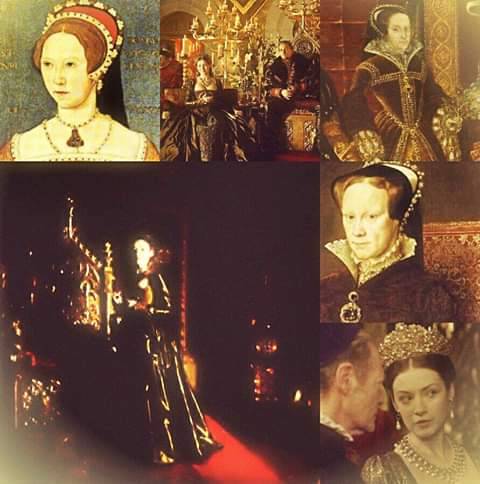
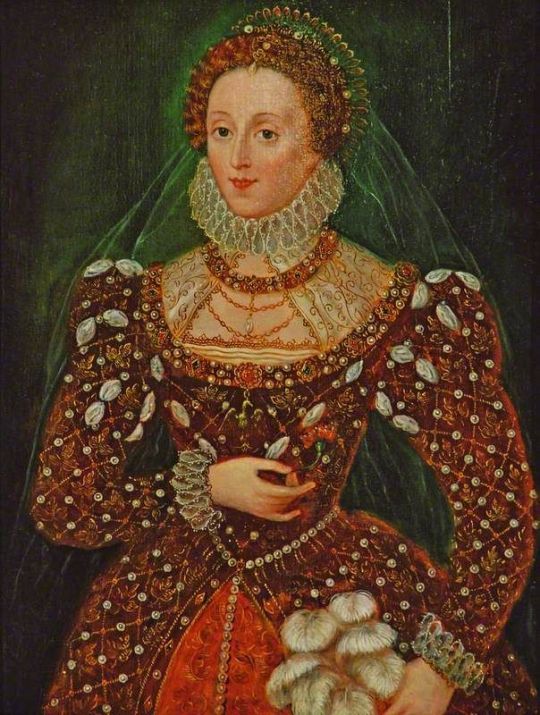
The Contrast between two powerful women -Mary & Elizabeth: Princesses, Bastards, Sisters and Queen Regnants
David Loades on the two of them:
“To Elizabeth there were no ‘matters impertine to women’ -in 1588 she even donned armour and proposed to lead her army. To Mary the perceived distinctions of gender formed an intangible but very real barrier that partly determined her relationship with her husband. Altogether Elizabeth was far better quipped by nature to deal with the situation in which she found herself. Both women had passed through difficult and traumatic times as adolescents, but whereas the experience had left Mary in poor health and uncerstain of herself, it had left Elizabeth crafty and wary.
Mary’s real tragedy is that she was born to be a royal consort, the pious and dutifiul wife of a powerful king. Instead she found that God had given her the duty of ruling a realm. What Elizabeth was born to be is anyone’s guess, but she coped very successfully with what God threw at her. Considering all these limitations, and the shortness of her time, Mary’s reign was, nevertheless, in many respects successful, not least because she set precedents and also made some of the mistakes that Elizabeth was thereby able to avoid. As a person was (as even John Foxe recognized) a tragic figure, but as a queen she was important. In fact there is a lot to be said for loking at England from 1553 to 1603 as the realm of the queens -the time when England came to terms with challenging fact of a woman on the throne.”
David Starkey:
“Mary Tudor aimed for a heavenly crown; Elizabeth for an earthly one. The result was that for Elizabeth human life, in some sense, mattered. She was prouf of the fact that there had been no political executions in the first decade of her reign and bitterly disappointed when the circumstances of 1569 gave the headsman work once more … Mary, Henry VIII’s half Spanish daughter, had lost what he had gained and degraded his achievement. Now his other daughter Elizabeth, mere English, would restore his crown and her inheritance.”
Linda Porter:
“As national identity began to emerge strongly in England, Elizabeth was raised almost to the status of a national saint by centuries of male historians raised in the Protestant tradition. In this respect, her reputation is perfectly understandable. She was a remarkable woman presiding over a time of great achievement in many areas of human endeavor.
Less easy to explain is why modern writers still persists in denigrating Mary. Elizabeth’s reputation is not diminished by acknowledging the interest or achievements of Mary’s reign, short though it was. Though Mary had not enjoyed good health since her mid-teens, there was no reason to suppose she would die five years after ascending the throne … The blackening of Mary’s name began in Elizabeth’s reign and gathered force at the end of the 17th century, when James III compounded the view that Catholic monarchs were a disaster for England. But it was really the enduring popularity of John Foxe which shaped the view of her that has persisted for 450 years.”
I think Mary was no different than her father and sister in terms of cruelty, so I partly agree with Loades and Starkey here. Where Bess succeeded was in her uniqueness in staying single, and playing one side against the other, but more than that in her flamboyant fashions, and the way she used art to present herself as this divine matron. This was an age where appearances mattered and like their father, Elizabeth I understood that more than Mary I did who, despite trying her best efforts to be a dutiful wife and queen, didn’t succeeded in her PR campaign.
It was Elizabeth I’s PR campaign that came out stronger and it also had to do with how many years she ruled and the assassinations plots she avoided. She also exploited on the roots of national identity that had been planted in England since the One Hundred Years war, and religion had a lot to do with it. Whereas Mary became the Spanish Tudor, a woman of foreign descent with a foreign religion, Bess I became the Englishwoman, born of two English parents with a religion native to England. After the two were buried together (on order of James I), Mary would take on the role of the evil queen. The Victorians only made it worse. It wasn’t until the twentieth century that people began to look at Mary in a different -and more objective- way. Unfortunately, some take it too far and become angry at seeing the words ‘Bloody’ and ‘Mary’ in the same sentence. As with many figures of the Tudor era, you have to either like them or hate them. They must be saints or they must be villains.
Mary was neither. She was a trailblazer as one article pointed out, and as other historians have also pointed out, but she was also a tyrant and this is not something to be alarmed or squeamish about when everyone during this period was an autocrat and was willing to go above and beyond to protect his (or her) position. That is why Starkey’s epilogue in his biography of Elizabeth I, discussing the contrast between the two sisters, fails because while Elizabeth did prove to be more pragmatic and make more use of her image to showcase herself as this divine figure; both were just as cruel. And while Elizabeth I didn’t burn as many people, the heresy laws were still in place. Anabaptists were considered heretics so in theory they could still burn, and many of the archaic laws put in place during her ancestors’ continued. Lastly, Bess used other means to get rid of her cousins. Isolating them, driving them to madness and in the case of Mary, Queen of Scots, beheading them.
Out of all the latest biographers, it is Leanda de Lisle who gives the best summary of the two sisters, pointing out their cruelty, their dismissal of the law when it was convenient, and the struggles they faced -and how they faced them.
(Before some Tudor fans get angry, I am not saying that Mary was the sour woman that the first Elizabeth film -starring Cate Blanchett- made her out to be, but compared to Elizabeth who placed more emphasis in clothing, paintings, etc; Mary preferred to spend her time behind her desk, overseeing the progress of her Counter-Reformation.)
Sources:
1. Mary Tudor by David Loades
2. Elizabeth: The Struggle for the Throne by David Starkey
3. The Myth of Bloody Mary by Linda Porter.
And 4. Tudor by Leanda de Lisle
Also recommended: Mary Tudor: Princess, Bastard, Queen & The Queen's Bed: An Intimate History of Elizabeth's Court (both) by Anna Whitelock; Tudor Age by Jasper Ridley,The Tudors: A Short Introduction by John Guy and Time Traveller's Guide to Elizabethan England by Ian Mortimer.
1 note
·
View note